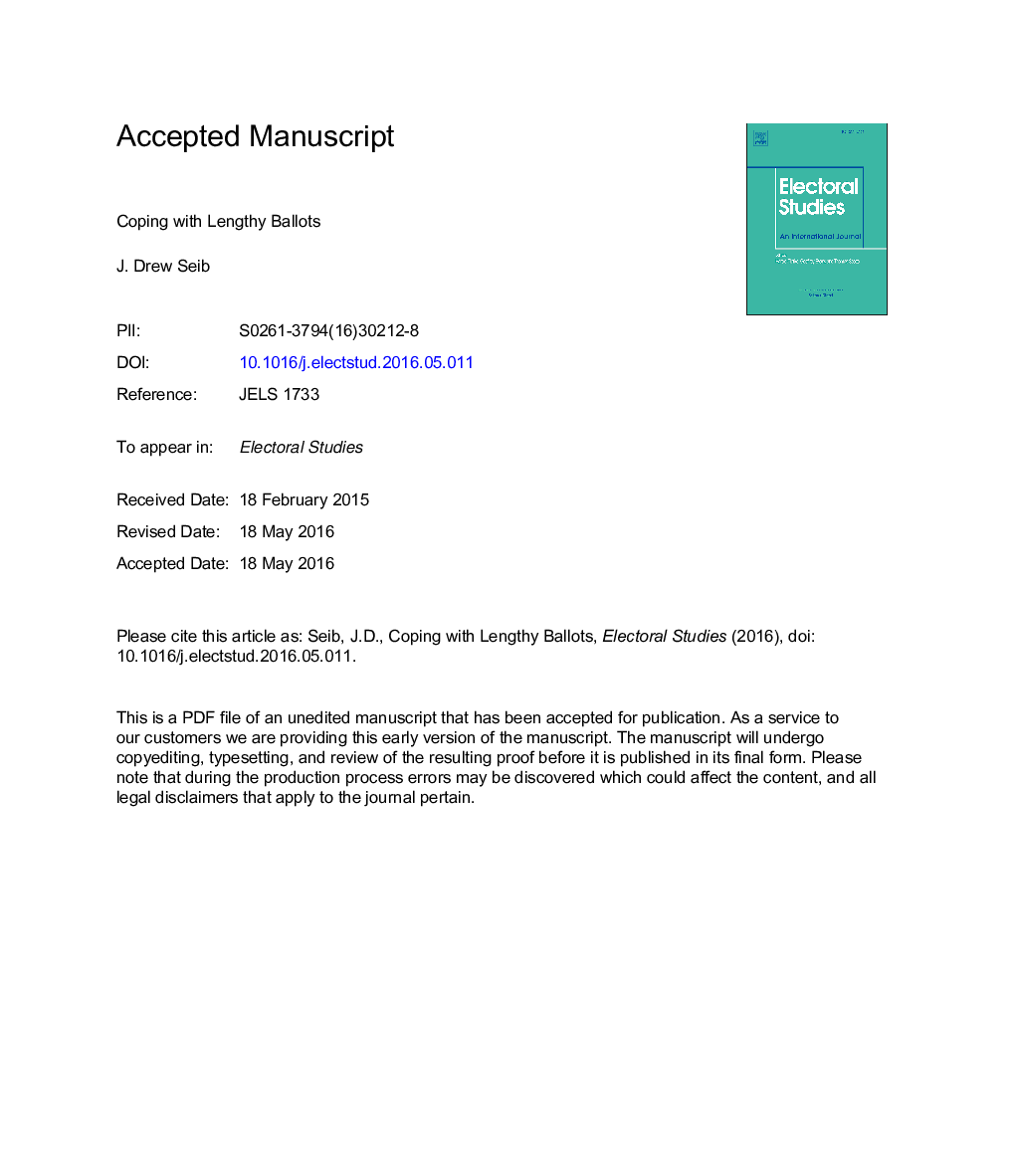| Article ID | Journal | Published Year | Pages | File Type |
|---|---|---|---|---|
| 7463569 | Electoral Studies | 2016 | 39 Pages |
Abstract
Given voters' limited cognitive abilities, the learning environments voters face may have implications for how voters learn and make decisions. One prominent feature of American elections is the variation in the length of the ballot across jurisdictions and elections. This paper explores the consequences of lengthy ballots on the ability of voters to learn about candidates. Using an experimental design and a dynamic information board (Lau and Redlawsk, 2006), subjects participate in a mock election where they are asked to gather information about a single election or multiple elections. The results indicate that while voters compare more information as ballot length increases, they spend significantly less time learning about individual pieces of candidate information.
Related Topics
Social Sciences and Humanities
Social Sciences
Geography, Planning and Development
Authors
J. Drew Seib,
